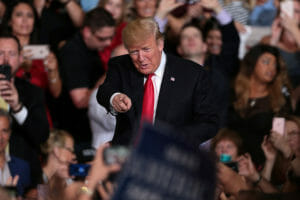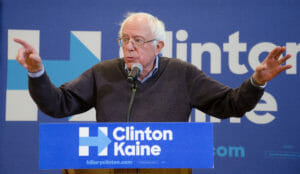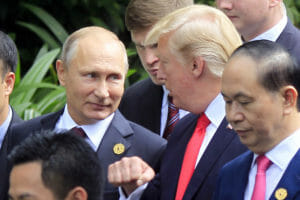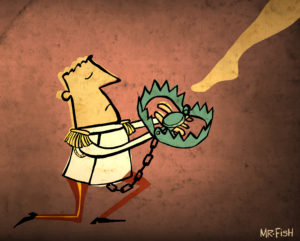Hillary Plays the Crazy Card
In this protracted and often dispiriting prelude to the general election, few remarks have been as poorly chosen as Sen. Hillary Clinton's threat to "totally obliterate" Iran.In this protracted and often dispiriting prelude to the general election, few remarks have been as poorly chosen as Sen. Hillary Clinton’s threat to “totally obliterate” Iran. What she obliterated with just those two words were her own boasts of superior diplomatic experience — and she managed at the same time to tar America’s international image with all the subtlety of the man she hopes to replace.
Context cannot excuse her, even though she uttered that gaffe in response to an intentionally provocative question: What would she do, as president, if the Iranian regime ever strikes Israel with nuclear weapons? First she could have noted that the question’s premise is wrong, at least according to the most recent National Intelligence Estimate, which found that Iran neither possesses nuclear arms nor is likely to acquire them anytime soon. Then she might have answered as all presidents (or aspiring presidents) should when asked about such hypothetical military scenarios: “Our adversaries know very well that we have the power and the resolve to respond if one of our closest allies is attacked.”
Alluding to the potential use of justified force is far smarter than blustering about an act of genocidal brutality. So why wasn’t that distinction obvious to Clinton? There are only two likely reasons, neither of which reflects well on her.
It is possible that she believes martial bluster will make her sound more like John McCain, the Republican presidential candidate whose macabre refrain of “bomb, bomb Iran” still echoes around the world. It is also possible that she truly believes threats of genocide are the best deterrent to Iranian misbehavior, as she told George Stephanopoulos last Sunday on ABC’s “This Week.”
Instead of clarifying or muting her aggressive blunder, she reiterated it, leaving transcripts that can be stripped of all qualification to make her sound still more bloodthirsty. “I want the Iranians to know that if I’m the president, we will attack Iran [if they attack Israel with nuclear weapons]. And I want them to understand that. … I think we have to be very clear about what we would do.”
Of course, opportunism is the political offense most often charged against Clinton. Should she ever return to the White House, we will probably be more secure and prosperous, if her belligerence toward Iran is mere campaign posturing. On other occasions she has advocated greater engagement with Iran, and that is certainly the view of her wisest advisers, so perhaps this is all wind without substance.
But that again raises the question of how far she will go to win, regardless of the damage she inflicts upon herself, her party and even her nation’s interests. Her remarks gave Tehran an easy chance to seize the moral initiative, which it instantly exploited by denouncing Clinton’s comments in a public letter to U.N. Secretary-General Ban Ki-moon as “provocative, unwarranted and irresponsible” and a violation of the U.N. Charter.
Evidently, the Iranian complaint won at least a modicum of sympathy, because the secretary-general’s spokesman later said that if Clinton “becomes president and she keeps saying that, then we’ll have to react.”
Were we not so inured to the most savage rhetoric by now, it might be considered ironic for a presidential candidate to endorse such a monumental crime against humanity in defense of the Jewish state. Does Clinton not understand the difference between the mullahs’ regime and the people of Iran? Does her notion of military strategy contemplate the incineration of millions of innocents?
And most pertinently, does she think her threats will convince the Iranians to empower the liberal reformers in Tehran rather than the reactionary extremists?
The Iran experts chosen by Clinton to counsel her campaign think not. Their well-informed and not terribly surprising assessment is that when we talk about wiping out Iran, the mullahs feel a more urgent need for nuclear weapons (and a stronger impulse to drive us out of the region). She has brushed off their analysis, just as she disdains the consensus of economists against the gas tax holiday advocated by her and McCain.
Voters who might consider supporting her have confronted this Clinton conundrum more than once. Does she believe what she is saying, or is she saying what she believes we want to hear? Which is worse?
Joe Conason writes for the New York Observer.
© 2008 Creators Syndicate Inc.
Your support matters…Independent journalism is under threat and overshadowed by heavily funded mainstream media.
You can help level the playing field. Become a member.
Your tax-deductible contribution keeps us digging beneath the headlines to give you thought-provoking, investigative reporting and analysis that unearths what's really happening- without compromise.
Give today to support our courageous, independent journalists.




You need to be a supporter to comment.
There are currently no responses to this article.
Be the first to respond.